
Note: you will need to set aside 35–40 minutes for this time together.
You will need:
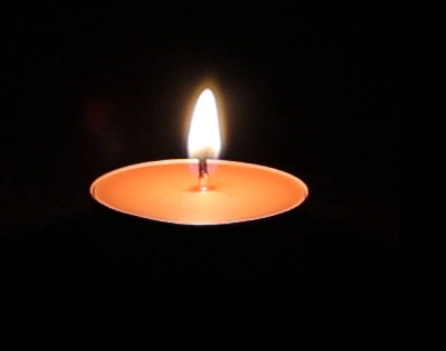
When Jesus received the news of John the Baptist’s death he withdrew by boat to a lonely place on his own. But the crowds heard of this and, leaving the towns, went after him on foot. So as he stepped ashore he saw a large crowd; and he took pity on them and healed their sick.
When evening came, the disciples went to him and said, ‘This is a lonely place, and time has slipped by; so send the people away, and they can go to the villages to buy themselves some food.’ Jesus replied, ‘There is no need for them to go: give them something to eat yourselves.’ But they answered, ‘All we have with us is five loaves and two fish.’ So he said, ‘Bring them here to me.’
He gave orders that the people were to sit down on the grass; then taking the five loaves and the two fish, and raising his eyes to heaven he said the blessing. And breaking the loaves he handed them to his disciples, who gave them to the crowds. They all ate as much as they wanted, and they collected the scraps left over, twelve baskets full. Now about five thousand men had eaten, to say nothing of women and children.
Did you notice that towards the end of this reading we are told that Jesus took ‘the five loaves and the two fish, and raising his eyes to heaven he said the blessing.’
The word blessing is an important word for us as we think about the celebration of the Eucharist.
When Jesus blesses the loaves and fish, he is not only honouring and cherishing them but he is saying that they are now special; they are blessed and, therefore, to be used as a special gift from God.
By blessing the loaves and fish, Jesus is asking God to make them special, to look on them favourably, to make them something to cherish and honour—to make them holy.
The blessing Jesus gives is also setting them apart from anything ordinary—they become a part of God’s gifts to us.
Together, take a few minutes to think about and discuss the following ideas.
I wonder what Jesus said and did that made the people seek him out.
I wonder if you have ever received a gift you thought didn’t exist or was not possible.
I wonder what you can do to ‘feed’ others.
Our Church celebrates Mass every day and especially on Sunday. Mass is the word we usually use, but it is sometimes called ‘the celebration of the Eucharist’.
The Mass has a particular shape to it—it’s the same every Sunday.
In our last session, we talked about ‘offering the gifts of bread and wine’. In this session, we will focus on a key moment in the Mass.
In the great eucharistic prayer, we praise and bless the Father for the great work he has done in sending his Son to save us.
This prayer has a very special moment called the consecration.
The priest takes the bread in his hand and says, ‘This is my Body …’
The priest then takes the wine in the chalice and says, ‘This is my blood …’
During this great prayer of blessing, where God the Father is blessed, the gifts of bread and wine are changed into the Body and Blood of Christ.
This prayer finishes by giving glory to the Father through Christ:
Through him and with him, and in him, O God, almighty Father, in the unity of the Holy Spirit, all glory and honour is yours, forever and ever.
Amen.
Do you remember the gospel reading at the beginning of today’s session? You can always go back and listen to it again.
Can you match the actions of Jesus to the actions of the priest at Mass?
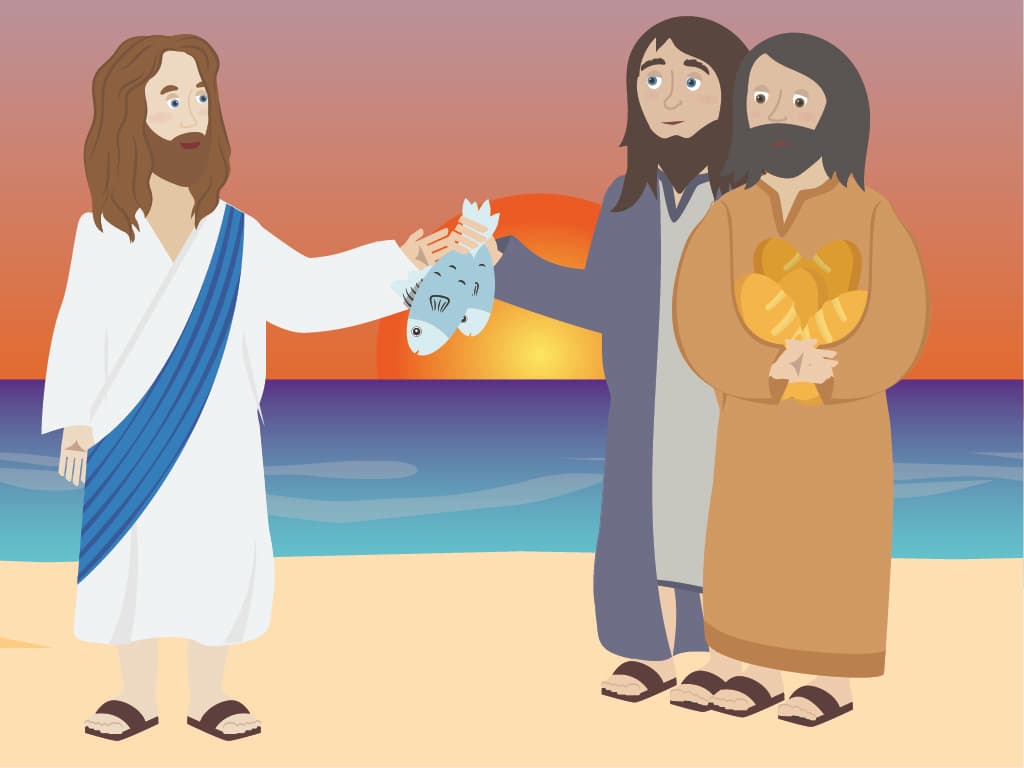
Take: Jesus takes the loaves and fish.
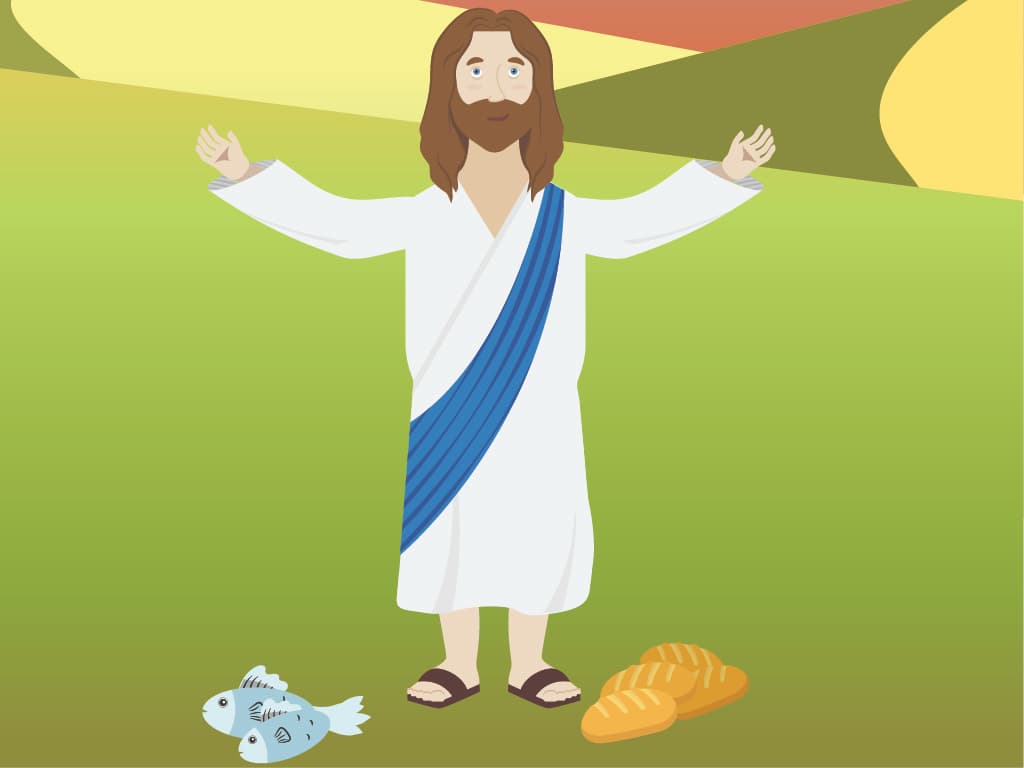
Bless: Jesus thanks God for the loaves and fish.
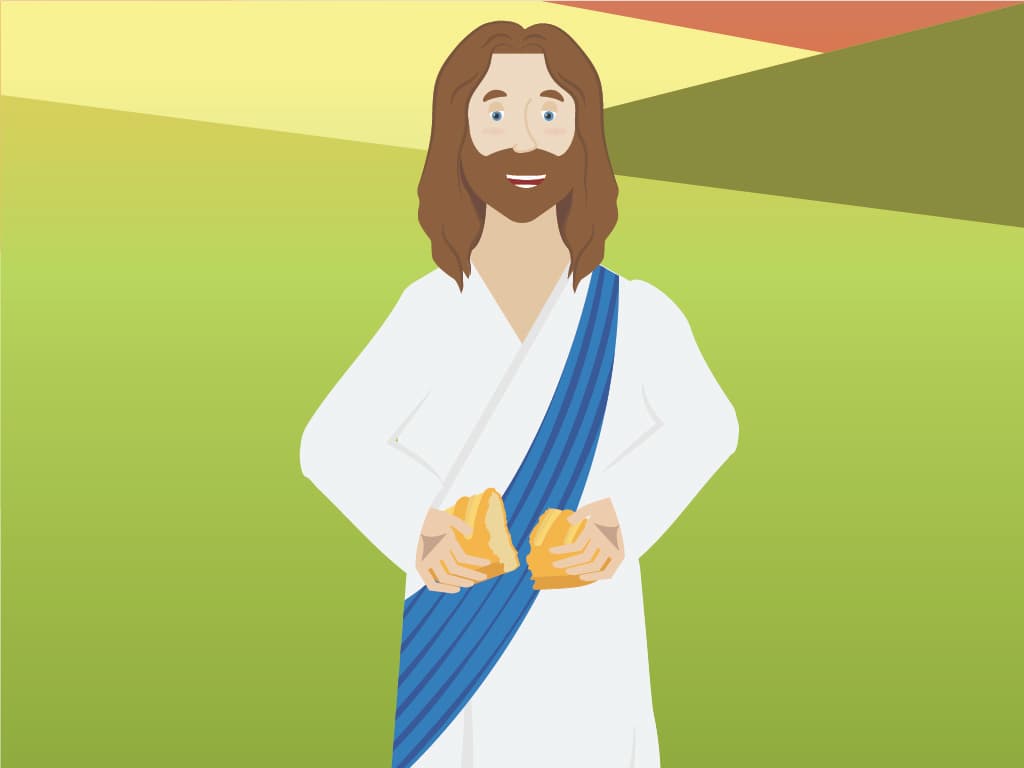
Break: Jesus breaks the loaves.
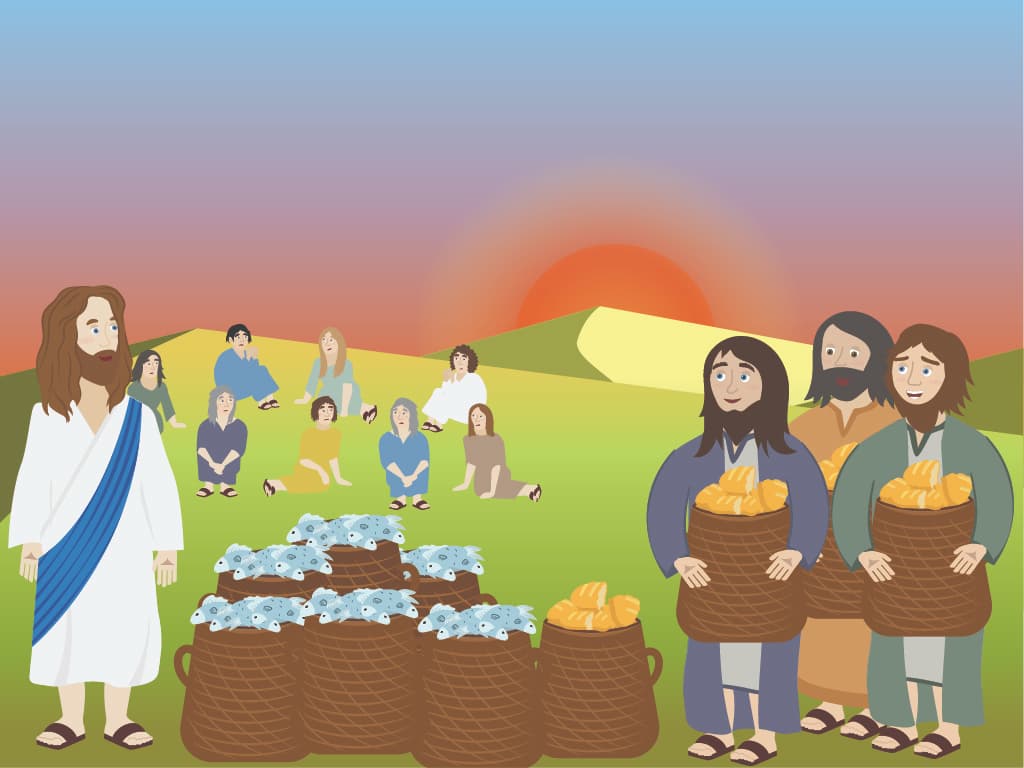
Share: Jesus shares the loaves and fish.
Just like Jesus in the gospel story of the feeding of the five thousand, at Mass the priest uses very similar words and actions to bless the bread and wine.
These special gifts of bread and wine are given to us. We return them to God so that they may be changed into the Body and Blood of Jesus, the food for our soul—God’s special, honoured and cherished gift to us.
In your journal, write a little prayer of thanks to God for the wonderful gifts and blessings he has given to you.